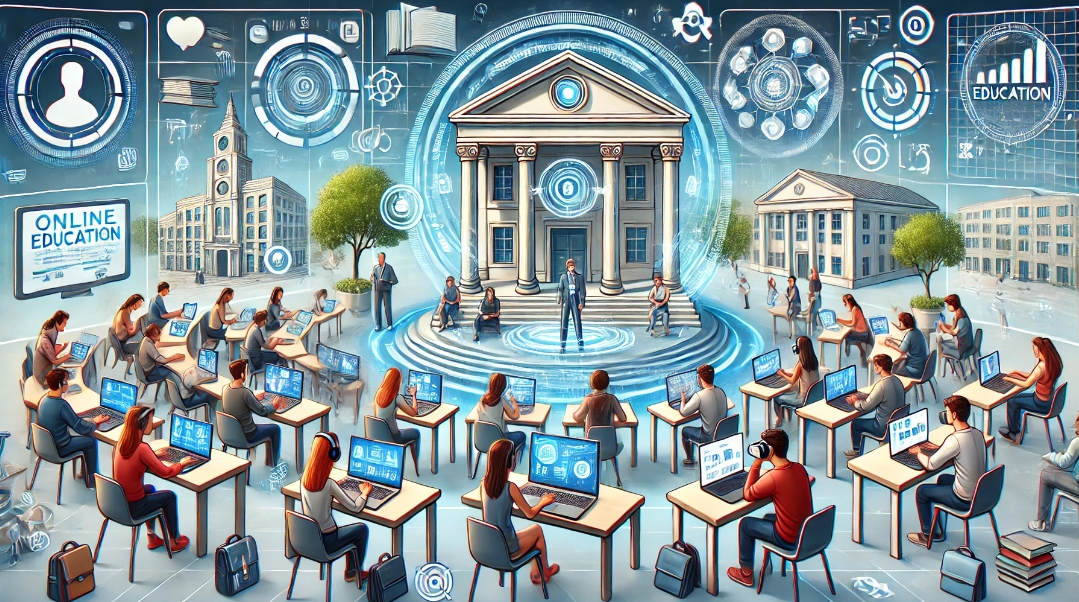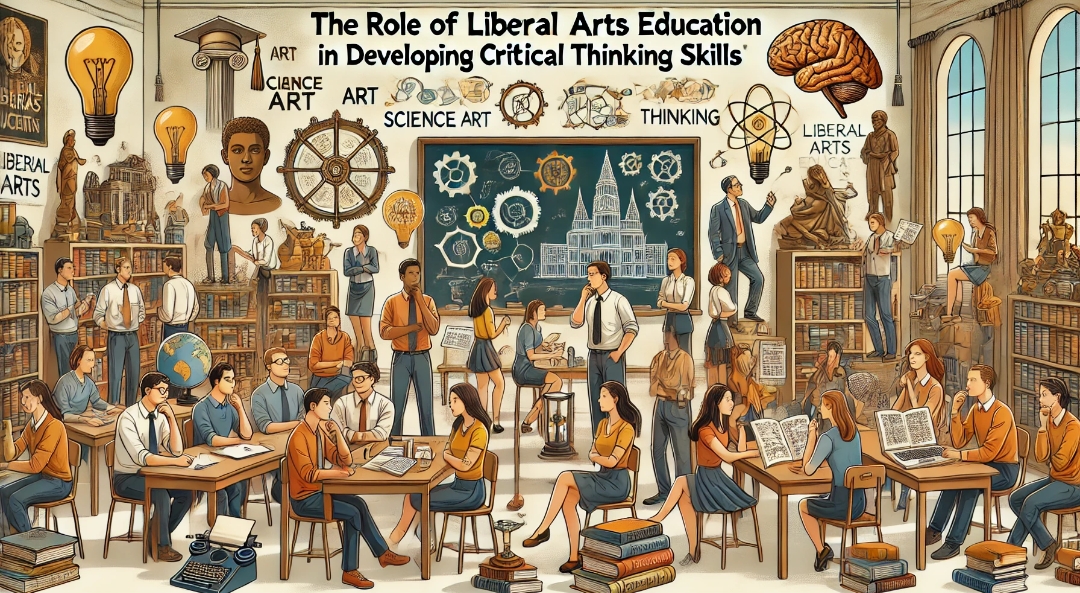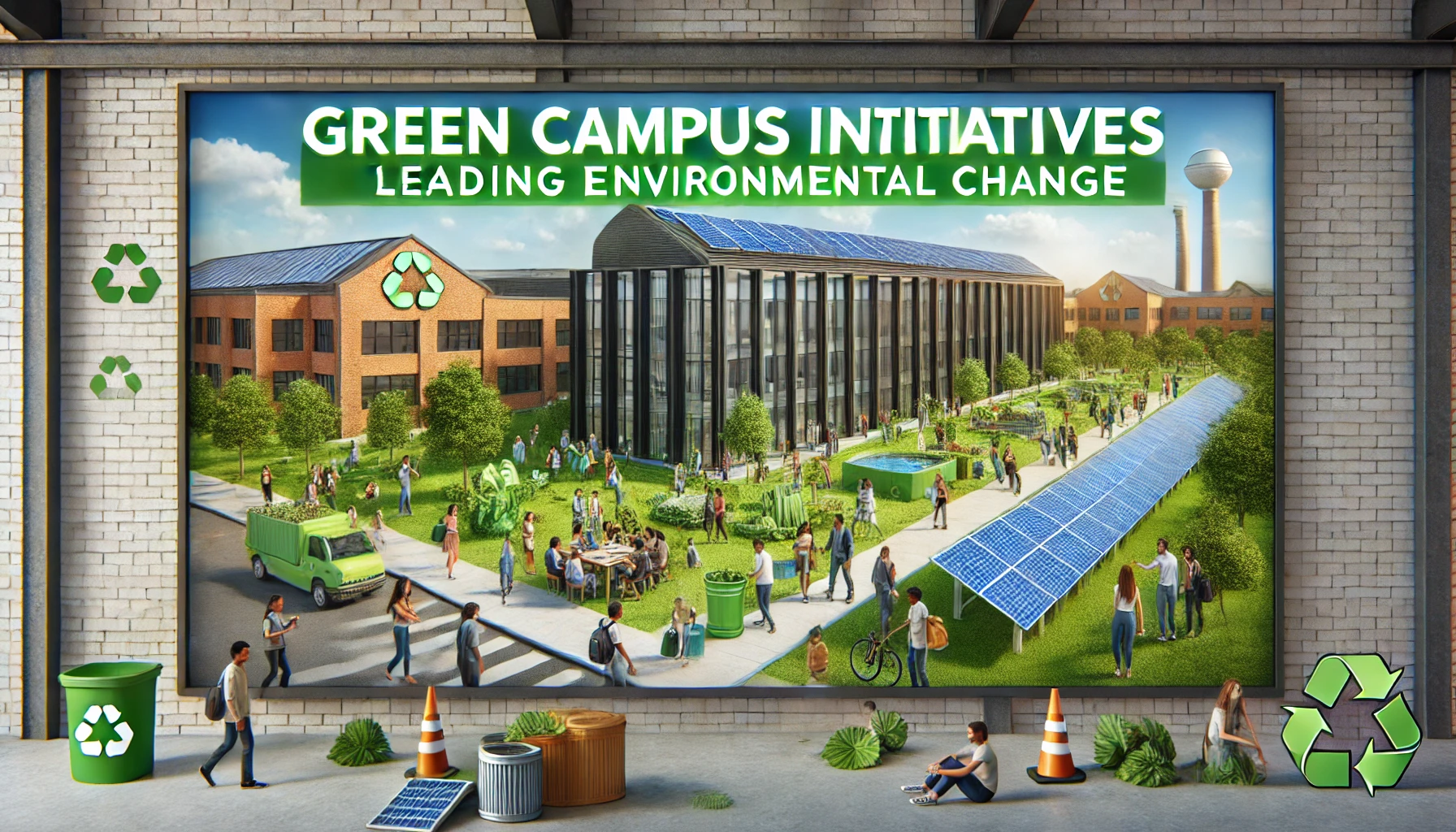The Evolution of Online Education: Trends and Future Implications for Universities

Online education has transformed the landscape of higher learning, evolving from a supplementary tool to a mainstream mode of education. Over the past two decades, advancements in technology, changing student demographics, and growing demand for flexible learning options have driven the rapid growth of online education. The COVID-19 pandemic further accelerated this shift, pushing universities worldwide to adopt digital platforms almost overnight. As online education continues to evolve, it presents both challenges and opportunities for universities, prompting a rethinking of traditional models of teaching and learning. This article explores the key trends in online education and examines the future implications for universities as they navigate this digital transformation.
The Rise of Online Education
The origins of online education can be traced back to the early 2000s when internet accessibility and digital technologies began to open new possibilities for learning. Initially, online education was viewed as a convenient option for non-traditional students, such as working professionals and those living far from campus. However, as technology improved, online education gained credibility, with prestigious universities offering online courses and degree programs that rival their on-campus counterparts.
Today, online education is no longer confined to a niche market. According to the National Center for Education Statistics, more than one-third of all college students in the United States are enrolled in at least one online course. This trend is mirrored globally, as students increasingly seek flexible, accessible, and cost-effective education options. The pandemic further validated the importance of online learning, forcing even the most traditional institutions to embrace digital platforms and rethink their delivery methods.
Key Trends Shaping Online Education
1. Growth of Massive Open Online Courses (MOOCs)
Massive Open Online Courses (MOOCs) have played a significant role in the expansion of online education. Platforms like Coursera, edX, and Udacity offer courses from top universities and industry experts to millions of learners worldwide. MOOCs have democratized access to education, allowing anyone with an internet connection to learn from leading institutions, often at little or no cost.
MOOCs have evolved from their initial model of free, non-credit courses to more sophisticated offerings, including professional certificates, micro-credentials, and fully online degree programs. This trend reflects a growing demand for flexible, skills-based learning that can be tailored to individual needs and career goals. As MOOCs continue to innovate, they are likely to play an increasingly prominent role in the future of higher education.
2. The Rise of Hybrid and Blended Learning Models
Hybrid and blended learning models, which combine online and in-person instruction, are gaining popularity as universities seek to offer the best of both worlds. These models provide students with the flexibility of online learning while retaining the benefits of face-to-face interaction and hands-on experiences.
Blended learning allows students to access course materials, lectures, and assessments online, while attending in-person sessions for discussions, labs, and collaborative projects. This approach enhances student engagement and accommodates different learning styles, making education more personalized and accessible. As universities continue to refine these models, hybrid learning is poised to become a staple of modern higher education.
3. Increased Use of Artificial Intelligence and Adaptive Learning
Artificial Intelligence (AI) and adaptive learning technologies are revolutionizing the way students learn online. These technologies use data analytics to tailor the learning experience to individual students, providing personalized feedback, identifying areas of improvement, and suggesting resources based on performance.
Adaptive learning platforms can adjust the difficulty of assignments, quizzes, and content delivery to match a student’s progress, ensuring that they receive the support they need to succeed. AI-driven chatbots and virtual teaching assistants also enhance the learning experience by providing real-time answers to questions, guiding students through course materials, and offering reminders for assignments. As these technologies continue to evolve, they have the potential to make online education more engaging, efficient, and effective.
4. Emphasis on Skills-Based Learning and Micro-Credentials
As the job market evolves, there is a growing emphasis on skills-based learning and the acquisition of micro-credentials. Online education platforms are increasingly offering short courses, certificates, and badges that focus on specific skills, such as data analysis, coding, digital marketing, and project management.
These micro-credentials provide a flexible and targeted approach to learning, allowing students to gain the skills needed for their careers without committing to a full degree program. Employers are also recognizing the value of these credentials, which demonstrate that candidates possess the latest, job-relevant skills. This trend is likely to continue as the demand for lifelong learning and upskilling grows in the face of technological advancements and shifting job roles.
5. Growth of Global Online Learning Communities
Online education has enabled the creation of global learning communities that connect students from diverse backgrounds and geographical locations. Through discussion forums, group projects, and virtual networking events, online learners can collaborate, share ideas, and gain insights from peers around the world.
This global connectivity enriches the learning experience, exposing students to different perspectives and fostering cross-cultural understanding. It also prepares students for the increasingly interconnected world of work, where collaboration across borders is becoming the norm. As online education platforms continue to expand, these global learning communities will play an essential role in shaping the future of education.
Challenges of Online Education
1. Maintaining Quality and Engagement
One of the biggest challenges of online education is maintaining the quality of instruction and student engagement. Unlike traditional classrooms, online learning environments can feel isolating, and students may struggle with motivation and self-discipline. Ensuring that online courses are interactive, engaging, and academically rigorous is essential for student success.
To address this, universities are investing in instructional design, multimedia resources, and interactive tools that enhance the online learning experience. Virtual labs, simulations, and gamification techniques are being used to make learning more engaging and to provide hands-on experiences that replicate in-person learning environments.
2. Digital Divide and Accessibility Issues
The digital divide remains a significant barrier to online education, with disparities in access to technology and internet connectivity impacting students from low-income and rural backgrounds. Ensuring that all students have equal access to online learning opportunities is a critical challenge for universities.
Universities can address these issues by providing resources such as loaner laptops, Wi-Fi hotspots, and digital literacy training. Additionally, online platforms must be designed with accessibility in mind, incorporating features that support students with disabilities, such as screen readers, closed captioning, and alternative text for images.
3. Assessment and Academic Integrity
Assessing student learning in an online environment poses unique challenges, particularly when it comes to ensuring academic integrity. The prevalence of online exams and assignments increases the risk of cheating, plagiarism, and other forms of academic dishonesty.
To combat these issues, universities are adopting proctoring technologies, plagiarism detection tools, and alternative assessment methods such as project-based assignments and open-book exams. By rethinking traditional assessment models and emphasizing authentic learning experiences, universities can uphold academic standards while adapting to the online environment.
Future Implications for Universities
1. Rethinking the Traditional Campus Experience
The rise of online education is prompting universities to rethink the traditional campus experience. As more students opt for online and hybrid models, institutions must find new ways to add value to the on-campus experience, such as offering unique hands-on learning opportunities, access to state-of-the-art facilities, and personalized support services.
Universities may also need to redesign their physical spaces to accommodate blended learning, creating flexible classrooms that can support both in-person and virtual interactions. The future of higher education will likely involve a more integrated approach, where the physical and digital campuses work in harmony to provide a seamless learning experience.
2. Expanding Access to Lifelong Learning
Online education is expanding opportunities for lifelong learning, allowing individuals to continuously update their skills and knowledge throughout their careers. Universities can leverage this trend by offering non-degree programs, professional development courses, and executive education that cater to adult learners and working professionals.
As the demand for upskilling and reskilling grows, universities have the opportunity to become hubs of lifelong learning, providing flexible and accessible education options that meet the needs of learners at all stages of life. This shift will require universities to adapt their business models and explore new revenue streams, such as subscription-based learning and corporate training partnerships.
3. Embracing Innovation and Digital Transformation
The evolution of online education is driving universities to embrace innovation and digital transformation. Institutions that invest in cutting-edge technologies, data analytics, and digital infrastructure will be better positioned to meet the needs of modern learners and remain competitive in a rapidly changing landscape.
Universities must also foster a culture of innovation, encouraging faculty to experiment with new teaching methods and digital tools. By embracing change and prioritizing continuous improvement, universities can create a dynamic and responsive educational environment that prepares students for the future.
Conclusion
The evolution of online education is reshaping the future of higher education, offering new opportunities for access, flexibility, and personalized learning. While challenges remain, such as maintaining quality and addressing the digital divide, the ongoing innovation in online education promises to transform the way universities deliver education and engage with students.
As universities continue to adapt to the digital age, they have the chance to redefine the traditional boundaries of education, creating more inclusive, accessible, and




